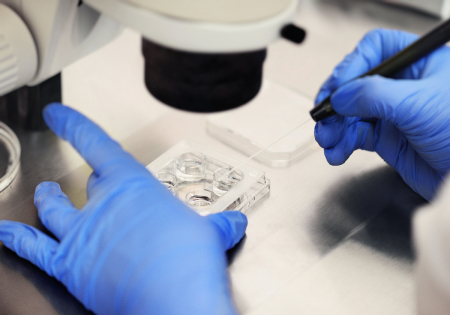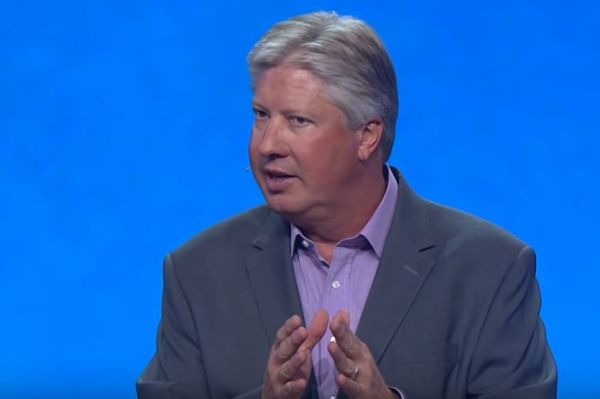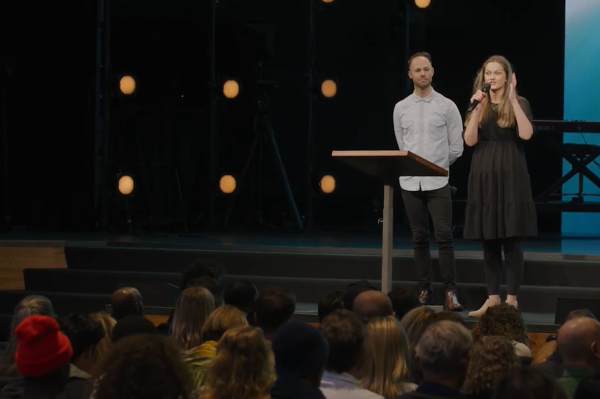IVF embryos are protected children under state law, Alabama Supreme Court rules

The Alabama Supreme Court has ruled that embryos created through in vitro fertilization and kept frozen are protected by state law, overturning a lower court decision.
In a decision released last Friday in the case of James LePage and Emily LePage, et al v. The Center for Reproductive Medicine, the high court determined that frozen embryos were protected by Alabama's Wrongful Death of a Minor Act.
Associate Justice Jay Mitchell authored the majority opinion, concluding that "the Wrongful Death of a Minor Act applies to all unborn children, regardless of their location."
"All parties to these cases, like all members of this Court, agree that an unborn child is a genetically unique human being whose life begins at fertilization and ends at death," wrote Mitchell.
"The question on which the parties disagree is whether there exists an unwritten exception to that rule for unborn children who are not physically located 'in utero' — that is, inside a biological uterus — at the time they are killed."
Mitchell wrote that the Wrongful Death of a Minor Act, first enacted in 1872, "applies to all children, born and unborn, without limitation" and that it was "not the role of this Court to craft a new limitation based on our own view of what is or is not wise public policy."
Associate Justice William B. Sellers authored an opinion that concurred in part and dissented in part to the majority, arguing that the claim that a frozen embryo was tantamount to a baby in the womb was "clearly contrary to the intent of the legislature."
"To equate an embryo stored in a specialized freezer with a fetus inside of a mother is engaging in an exercise of result-oriented, intellectual sophistry, which I am unwilling to entertain," wrote Sellers.
"Should the legislature wish to include in vitro embryos in the definition of 'minor child,' it may easily do so. Absent any specific legislative directive, however, we should not read more into a legislative act than the legislature did so itself. Thus, as to the majority opinion's conclusion regarding the Wrongful Death of a Minor Act, I respectfully dissent."
Pro-life activists like Lila Rose, who serves as founder and president of the group Live Action, celebrated the Alabama Supreme Court decision as a victory for life.
"Proud of the Alabama Supreme Court for acknowledging the science and using basic reason and fairness to decide that a baby conceived via IVF should have the same legal protections as a baby conceived naturally," she tweeted Tuesday.
Pro-choice advocates like Ruth Marcus, associate editor and columnist with The Washington Post, denounced the decision as "dangerous on two levels."
"The imminent danger is to the availability of IVF in Alabama. As the clinic and the Alabama Medical Association argued, if embryos are unborn children protected by the wrongful-death law, creating and storing embryos will be unduly risky," wrote Marcus.
"The longer-term danger — indeed the apparent longer-term goal — is to raise and expand the definition of unborn personhood, to go after birth control methods and reproductive technologies that involve fertilized eggs. Will fertility clinics be permitted to dispose of unused frozen embryos? Could states prohibit in vitro fertilization altogether? Will IUDs, birth control pills or the morning-after pill be banned?"
According to a 2021 survey of over 5,500 biologists from more than 1,000 different academic institutions, 96% of respondents believed that human life "begins at fertilization."





















